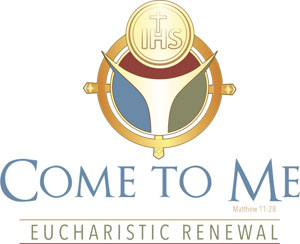- Download PDF Version available for use with email and print distribution.
To: All parish and school business managers
From: Holly Orsagh, director of financial services, Office of Finance
You may have recently received property tax information for property that is associated with your parish/mission/school. Property valuations are generally sent out in the spring, followed by a period during which the valuation can be appealed to the county tax commissioner. Counties and municipalities also send notices of sewer or stormwater fees to be paid. These fees are billed separately from the property tax bills, but based on the same valuation, and are payable by the parish/school – even if the property has been exempted from property tax.
GENERAL TAX INFORMATION
IF WATER/SEWER/STORMWATER FEES: Payment should be made by the parish/school. No parish/school is exempted from these fees.
IF A PROPERTY TAX NOTICE: Many of our Archdiocese of Atlanta properties have been retitled as property jointly owned by the parish/school and archdiocese. The previous title records specified the name of the archbishop at the date of purchase. The AOA Properties Holding Inc., is a real estate trust, and was legally formed to hold all of the various real estate properties – which number more than 400 individual parcels of land. Although each parish/mission/school name is not specified in property titles, the properties are each held “in trust” for the exclusive usage by the specific parish/mission or school. So, each parish/school has essentially joint ownership and legal rights to use of the property, and the property is appropriately shown as an asset on the parish/school’s balance sheet.
Certain counties may have recognized the change in title as being a real estate sale – which of course, it was not. They would then automatically generate a tax bill with an incorrect assumption that the property was sold, thereby hoping that the “new” owners would begin to pay property taxes.
A tax notice may also have been generated due to an actual purchase of a new property by the parish/school, as described next.
NEWLY PURCHASED PROPERTY AND TAX PRORATION: The previous owner/”seller” typically paid property taxes up until the sale date, and the current year’s property taxes were prorated through that date between the seller and the buyer. To formally change the “usage” of a newly purchased property to “exempt use” or religious use, there must be documentation submitted to the county’s tax commissioner reflecting the actual usage of the property on January 1st of the tax year. The documentation is required to be submitted in accordance with each county’s tax commissioner’s specific guidelines.
For example, if a lot was purchased on July 1, 2023, which is halfway through the tax year: the seller had responsibility for taxes until July 1, and the buyer had responsibility for the second half of the year. If there is a reason to claim “religious use” of the property, then documentation of that usage would be necessary as of January 1, 2024 and then submitted during the spring to the county tax commissioner. If the tax commissioner allows the exemption, then the taxes for 2024 would be waived, based upon the religious use. Note: the property taxes for the current (2023) year would need to be paid until the appeal is completed the FOLLOWING YEAR.
EXEMPTIONS: Property tax exemptions are ruled upon by the tax commissioner. Property that is used for “religious use” is often exempted from property taxes, so long as there is sufficient documented evidence of the “religious use.” Such exempt use typically includes property that used for religious services or for property used to provide housing for clergy.
EXACT RELIGIOUS USE: “Religious use” generally requires that services are performed on the property. There are cases where a new “parcel” of land (such as an existing parking lot) is purchased but is not allowed to be tax-exempt, since the tax commissioner may say that there is no such thing as “religious” parking. However, a wooded area that will be the future site of a rectory, for example, may be altered in a manner to create a prayer garden with statuary, a cross or Stations of the Cross – and this could form part of the basis for defining the property’s use as “religious.” A house that is converted to use for clergy housing may be far easier to obtain “religious use” exemption than other properties.
DOCUMENTATION: Documentation of “religious use” requires sufficient documentation, such as references and/or pictures, notices of prayer use in a weekly church bulletin, etc. Simply having the Stations of the Cross on the property may not, in and of itself provide sufficient documentation of valid religious use. And property tax exemption based upon “religious use” should not be done simply to avoid having to pay property taxes – but rather to assist in furthering the parish/mission’s ministry and spiritual growth.
EXEMPTION ASSISTANCE: Applying for “religious use” exemptions may require involvement by an accountant or attorney on the parish’s finance council, another individual with knowledge of real estate or the county’s tax appeal process.
If the parish/mission would like further assistance with this, the archdiocese’s outside attorneys are familiar with the process and could assist the parish on a fee-for-service basis. If you have any other questions about this, please contact either me (horsagh@archatl.com or 404-920-7906), Patrick Warner (pwarner@archatl.com or 404-920-7410) or Brad Wilson (bwilson@archatl.com or 404-920-7404).

